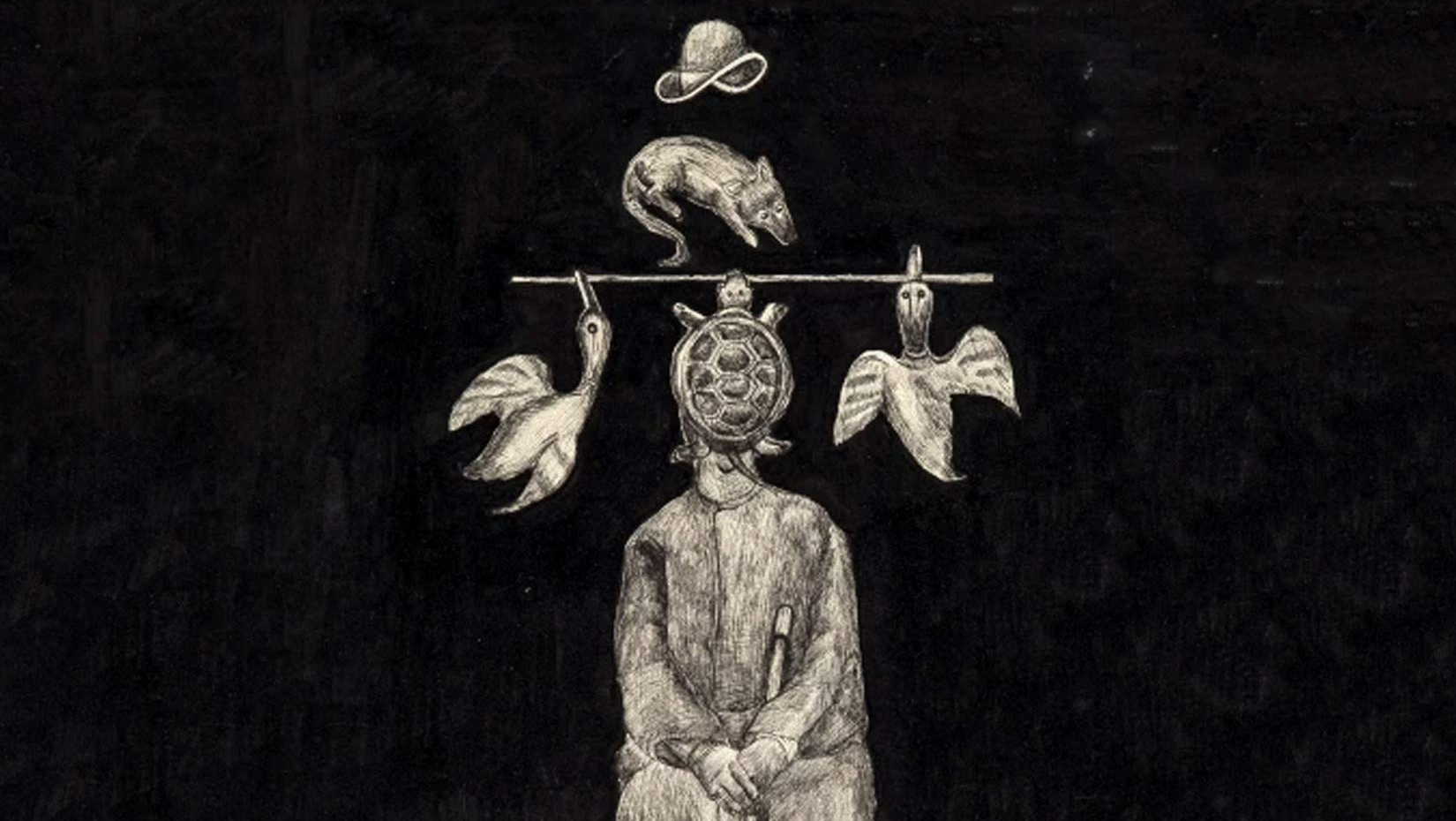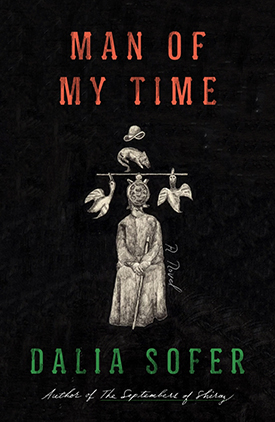Bound galleys of Dalia Sofer’s Man of My Time happened to go out just as political tensions started to escalate between the US and Iran over the killing of Major General Qasem Soleimani. Some weeks later, as we publish this novel, the entire world is reeling not from a Middle Eastern political crisis but from a pandemic. Yet, amid this catastrophe, Man of My Time has garnered a rare four-out-of-four starred pre-publication reviews, and Rebecca Makkai has called it, “A master class in the layering of time and contradiction,” in a front page New York Times Book Review. Sofer had a conversation with her editor, Ileene Smith, about her new book.
Ileene Smith: Dalia, this is obviously an unprecedented time to publish a book. Yet, so many friends and colleagues have remarked on the particular solace of storytelling, of fiction. In this way, your novel, Man of My Time, feels like the archetypal literary book being published into this very uncertain moment. It is neither explicitly nor implicitly about the pandemic. Yet, your novel about a fractured Iranian family is a reckoning with so many issues raised by this scourge: family, separation, conscience, loneliness. These themes seem to resonate in new ways through what we are living now.
Dalia Sofer: Thank you, Ileene. As every writer knows, many years of hard work, solitude, and self-excavation go into a book like this, and to have it released into a shattered world is admittedly painful. Of course, we are all coping with grief right now. My hope is that I have given the novel the essence it needs to withstand this collective darkness and to thrive in the world on its own terms.
IS: It’s that essence that is transmuted into solace through the act of reading.
DS: Yes, I’ve had that experience myself, of finding solace in fiction in times of crisis. A novel can offer us stillness—a space to connect with our own humanity, and with one another.
This crisis, more than any other, has forced us to pause and has propelled us into absolute solitude, a solitude which is very cruel but which, if tapped into carefully, gives us a chance to reflect on who we are in the deepest sense.
IS: You use the word “cruel.” Your main character, Hamid, the brother who remains in Iran during the Revolution and collaborates with the Revolutionary government—he’s done some treacherous things in his life, but is he cruel?
DS: I don’t believe Hamid is cruel. Cruelty implies indifference to suffering, and at no point is Hamid indifferent to pain. He is a man in conflict with himself, and his downfall is his lack of will in the face of external pressures. Though he is an interrogator of others, he is primarily a self-interrogator. He is acutely aware of his own treachery and doesn’t let himself off the hook.
IS: Where does the title come from?
DS: The title, Man of My Time, comes from a poem by the Italian poet Salvatore Quasimodo (Uomo del mio tempo). During and after World War II, Quasimodo became increasingly engaged with the stark realities of his day, and his poems reflected this new engagement. This poem speaks of man’s penchant for violence, from the time of Abel and Cain until the present day. But the end leaves room for the possibility for change, for the son not to repeat the father’s actions. I chose the title firstly because I loved the sound of it. I also felt that it reflected the world I was depicting in my novel—of violence reverberating across time, and of the possibility of breaking free and choosing a different course. And because the novel is narrated in the first person, the title also takes on an ironic dimension—it is in fact Hamid saying of himself, “I am a man of my time”—a statement that can be viewed at once as a self-justification (“the period I live in has turned me into the man that I am”) and as a verdict on society (“look at me, I am a man of my time, and by extension, yours”).
IS: Your previous book, The Septembers of Shiraz, was the rare first novel that was a national bestseller. It was the story of a Persian-Jewish family in Iran. The family in your new novel is quite different. Who are they?
DS: The Mozaffarians are more eccentric than the Amins. They are more explosive, more thespian. The father, Sadegh, is a scholar with a hint of madness—for decades he has been constructing a comprehensive encyclopedia of Persian art. He is obsessed with the origin of things, even though he is aware that there is no absolute knowable origin to anything, and that new discoveries will always overwrite the old. The tragedy of his life is the loss of his beloved encyclopedia and his eventual exile from his country and his eldest son, to whom he remains devoted despite their jagged history.
IS: And the mother?
DS: The mother, Monir, is a self-proclaimed descendant of a Qajar king (and carries the corresponding affectations). She is shunned by her aristocratic family for having married beneath her social rank, and by her husband for not being his intellectual equal. The younger son, Omid, is a struggling poet and translator unable to attain a sense of belonging in America. And the book’s narrator, Hamid, a man who begins life as a sensitive boy at odds with his family, turns into an idealistic revolutionary and later—ambivalently and against his better judgment—severs ties with his family and becomes an interrogator for the Ministry of Intelligence in the new government. He is a man trapped in a broken world, searching for his own humanity. He is, in many ways, a pilgrim in search of self-knowledge, and the writing of the novel becomes his pilgrimage.
IS: The interconnectedness of things: past and future, captor and captive, father and son, nation and nation, seems to be at the core of Man of My Time.
DS: Yes, each character’s actions have a ripple effect on his own life and on the lives of others, also on his own future, and the futures of others. Conversely, the actions of others create the world that envelops each character. But in the midst of this synergy there is also freedom—to make choices, to change course. While most of the characters in the novel are solitary creatures—especially the narrator and his father—their decisions have far-reaching consequences. There is no such thing as a solitary act in family life or in history.
IS: I believe I entered publishing the year the Shah was overthrown. The terror of that moment was so visceral. But this is in no way an anti-revolutionary tract. There is so much nuance here, which is precisely what drew me to Man of My Time, that and the sound of your prose.
DS: Thank you, Ileene. You seemed to understand my intentions from the beginning, and I am so grateful that you never tried to turn the book into something it did not want to be. My aim in this book was to do away with fixed narratives—of people, families, nations, even history. I tried to undo the standard portrayal of the Iranian Revolution: that it was a monstrous movement hijacked by clerics, with disastrous consequences. That narrative is too simplistic and doesn’t do justice to the decades of thought and discourse that preceded the movement. While the revolution’s outcome may have been regrettable, the impulse behind the revolution—to restore the population’s agency with a potentially novel movement, one that didn’t simply mimic past revolutions (i.e. French, Russian)—was, in my mind, a noble one, and deserves to be recognized as such. I also didn’t want to satisfy the appetite (often Western) for explicit portrayals of the Islamic Republic’s wrongdoings. I tried to shed light on the complexities of post-revolutionary life not through gratuitous dramatization, but through the dissolution of one man’s psyche as he engages with an unjust system and sinks deeper and deeper into it.
IS: But it would mislead to suggest that Man of My Time is relentlessly dark. There is a vein of lightness and wit that runs through it—an aunt so fastidious that she irons her money . . .
DS: Yes, I wanted to depict the absurdity of human experience, not just the pain. I think this marked an evolution for me as a writer—the ability to leaven a stark narrative with humor. As Hamid’s daughter, Golnaz, tells him at the novel’s end, humor and lightness only come once you’ve traveled a sufficient distance from your own grief. I believe that was true for me as well.
IS: Do you think you will ever see your homeland again?
DS: Yes, I believe I will. And in some ways, you could argue that I never left.
Dalia Sofer is the author of the national bestseller The Septembers of Shiraz, winner of the PEN/Robert Bingham Prize, a finalist for the National Jewish Book Award, long-listed for the Orange Prize, and a New York Times Notable Book. It was published in sixteen countries. Sofer is a recipient of a Whiting Award, and her work has appeared in The New York Times Book Review, The Believer, the Los Angeles Review of Books, and elsewhere. She was born in Tehran, Iran, and moved to the United States with her family as a child.
Ileene Smith is vice president and executive editor at Farrar, Straus and Giroux.

